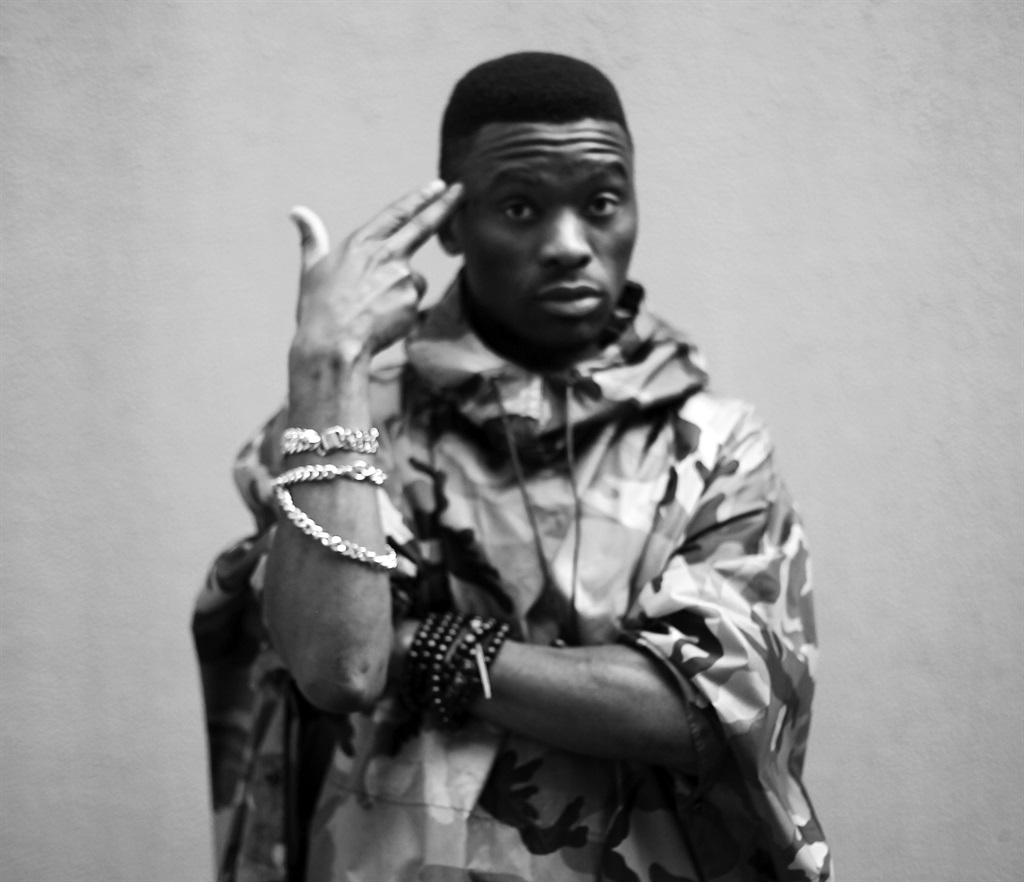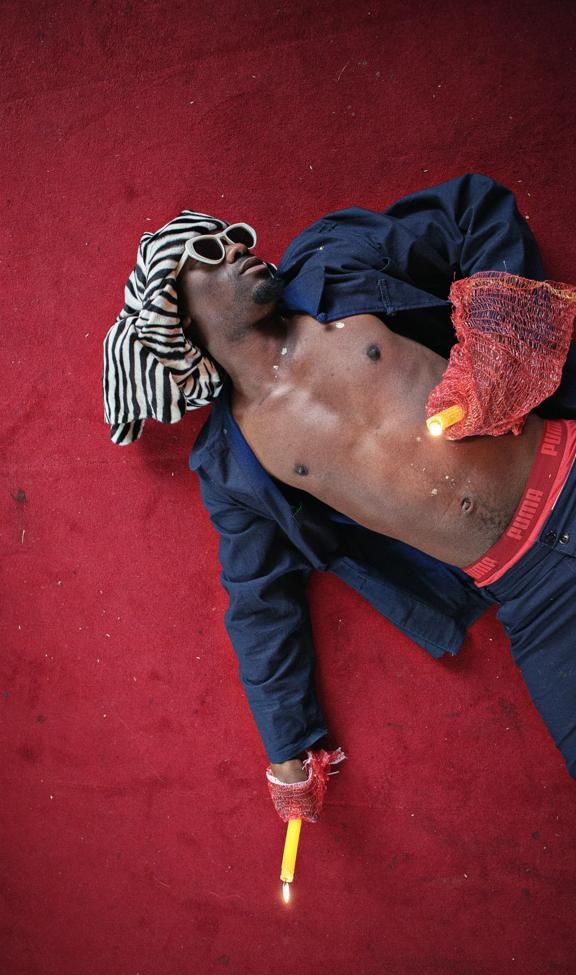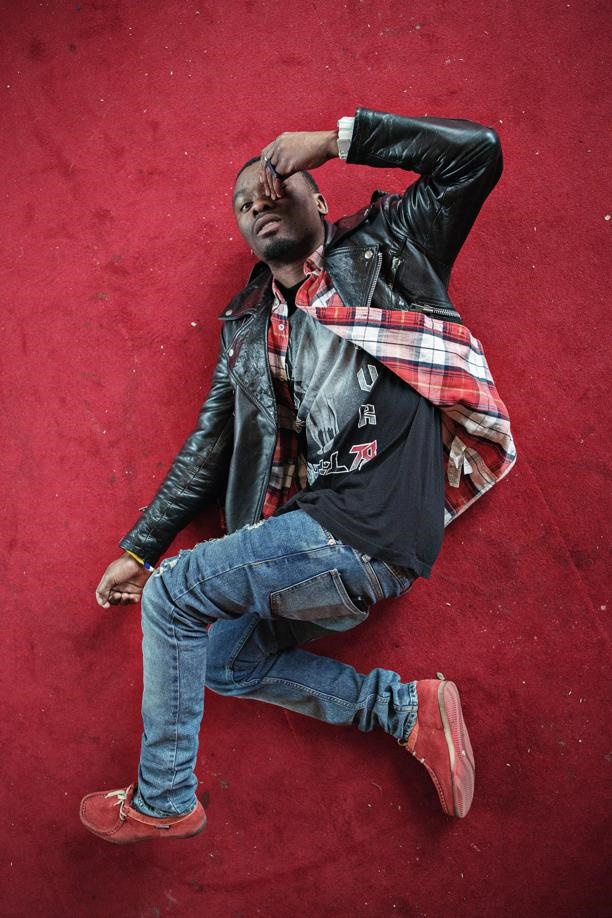
Digital maskandi artist Mashayabhuqe KaMamba is finally having his moment as more and more attention is given to his revamped traditional Zulu sounds and his unique storytelling, which pay homage to musical greats that came before him. He has even bigger and better plans, he tells Gugulethu Mhlungu
‘Mashaya comes alive when there is music ... Where there is art, Mashaya comes alive. It’s a spiritual thing for me, and I don’t know how else to explain it,” says Ntsikelelo Christian Ndlovu, AKA Mashayabhuqe KaMamba.
The father of digital maskandi is chatting to me on a crisp August evening from his home town of Eshowe in KwaZulu-Natal.
“I make my music for all people, but especially for the people here, the people who understand what Mashaya is about. I make music for people who know where they come from and where they would like to go without losing who they are...”
In the beginning
Zamalek Japan (another of Mashaya’s many nicknames) says it all began in high school, where he was studying art. “I realised that I was happiest when there was art involved. I decided I would pursue the art thing, in all its forms...”
This led to him registering for a BA in communication science at the University of South Africa, which Mashayabhuqe says he chose because “I wanted to learn the fundamentals of radio, of television and the behind-the-scenes stuff of the industry”.
He then decided he wanted to study further and deepen his learning, so he applied to Afda, the SA School of Motion Picture Medium and Live Performance, and was accepted.
He didn’t have enough money for the Afda fees, “so my father applied for a bank loan, which was thankfully granted”.
Then Ndlovu had a change of heart. “I thought about all the other things my family could do with the money instead of sending me to school . . . I really wanted to go to school, to do a course I really wanted to do, but there were so many families I had seen who had sunk into terrible debt for a dream, and I didn’t want that for my family.”
He pauses, and then says, “And I am still happy we didn’t take the loan. I’m not happy that I didn’t go to Afda, but I often think about how we would be in such a different place if we had taken that loan.”
He emphasises that this was a personal decision, one that was neither good nor bad, but one he thought was the best decision at the time.
“I dropped out of my BA course in late 2009/early 2010 to do music because I had decided that I was ready to focus on that. It was what I really wanted to do, even though it wasn’t the digital maskandi I am doing now.
“So I dropped out and did what is commonly known as ‘Durban kwaito’... that Lvovo and Big Nuz kind of style, with two other guys.
“We were young, having fun and following the trend, but, as fun as it was, I just knew that it wasn’t me!
“I got tired of consuming and creating the same thing over and over again – on TV, on radio – so I decided to get out. And that’s when I became Mashaya, that’s when I started this digital maskandi thing . . .”
Ode to the greats
It’s hard to label Mashaya’s digital maskandi sound, because it’s so rich.
Okayafrica called it “Mashayabhuqe’s signature blend of traditional Zulu folk [AKA maskandi] vocals with [a] trappy, autotune-heavy future Mzansi production”. The heavy trap basslines, the autotune synths that remind me a lot of Kanye West, and sometimes almost wailing vocals are characteristic of Mashaya.
In maskandi, modern instruments are used to replicate traditional ones, lending it to even further reversioning. Mashaya isn’t the first to do this and he is quick to acknowledge those who came before him.
“My music is highly influenced by mam’ Busi Mhlongo and Vusi Ximba . . .” The often hilarious storytelling in some of Mashaya’s songs is clearly an ode to Ximba’s unrivalled style of music and narrative.
“I am also inspired by Bon Iver and James Blake and I’ve Googled and watched how they use autotune, because I wanted to find a way to combine autotune with isiZulu and my stories in a way that the people where I come from and new listeners can both get involved with.”
He says he watched vintage Kanye West and Justin Vernon (multi-instrumentalist, singer, songwriter and producer, best known as the frontman of indie folk band Bon Iver), “not because I wanted to be like them, but because I was inspired by their art”.
“Despite being at it since 2010, it wasn’t until 2014 that he got what he considers to be his big break, at that year’s Back to the City festival in Newtown. “I was booked but no one really cared who I was. Folks said I was random, but the organisers squeezed me in. They took a big risk. I had seven minutes and I murdered it,” he says.
His brief – yet well-received – set included a performance of his track Shandarabaa Ekhelemendeh, featuring his good friend Okmalumkoolkat. The video of this track was released in September 2015 and was shot in hostels in downtown Jozi.
“After Back to the City, I started getting interviews everywhere. Okayafrica felt bad that they had disregarded me before Back to the City, and I started featuring on their platform a lot.”
But that wasn’t the end of it. Once he had dropped Shandarabaa Ekhelemendeh, he was featured in Fader magazine, which described his sound as “Zulu folk music given a Western twist”. He says this feature by Fader was when things really took off for him. “That was like, whoa man! It was crazy!”
Surviving Jozi
Speaking to Mashaya is an interesting experience. On the one hand he is answering your questions, but at the same time, he is talking to himself about some really cool idea.
He excitedly remembers something he must tell you while he’s answering a different question. Throughout our two interviews, I find a part of me wondering if he (like me) has some sort of attention deficit disorder.
But when he goes quiet, he gets really pensive.
Surviving Johannesburg is one of the things he gets very candid about.
“Man, I really think that if you can survive that place, you can survive anywhere. You can survive New York, Las Vegas, anywhere, because Johannesburg has been a nightmare. I came from a quiet place, where people greet one another, where people know one another, where people mean what they say, where I can look at mountains and breathe fresh air. But then you come to Jozi and it’s crazy . . .
“I first lived right in the middle of it, in Doornfontein, on Claim Street, near the university, and it really was just a nightmare for me . . .”
A few years on, however, he seems to have conquered the economic capital, at least his nightmarish time with it, but he’s still not impressed, saying: “People have lost their souls, they can’t pronounce their own last names, they can’t really speak their own languages properly any more . . .”
He pauses again, then adds: “People behave like animals and it’s been important for me to learn that, but also to learn who my family is, because I have had to learn that you have to put yourself and family first. Because abantu bazokujikela [people will turn on/change you] and you need to know who you can count on.”
‘I think I need a Grammy’
On Friday he released the video for his single Sun City Flow, which he recorded as part of his nine-track EP Black Excellence two years ago. He seems unfazed about all the attention he is finally receiving, and releases and produces his work as and when he feels it is right to do so.
“I am in a place where I am kinda mainstream, but also trying to hold on to the grunge of being underground or bubbling under . . .It’s an interesting space and I am not sure what to do with it.”
These days he has sights on bigger things, such as the Grammy Awards, in addition to trying to figure out who he should partner his music with.
According to Mashaya, he has been approached by numerous big-name record labels and companies, but he is cautious.
“There are so many people out there who just seem to be out for themselves or just the money, and I really want to partner with someone who understands what I am trying to do here.”
Earlier this year, Mashaya returned to the Back to the City festival where he performed another well-received set, this time landing a longer set.
Midway through his performance, he paused. Visibly touched, he said, “Man, I am so emotional. This sh*t actually made me, dawg.” He was referring to the largely unplanned 2014 performance that gave him his big break.
Following it came his first international trip and first international performance, in Paris, France.
“I took digital maskandi, my language, to people who’ve probably never heard of a place called Eshowe or eNkandla, but they rocked to my music.
“They know Mashaya now, and I want to keep doing that, to keep changing things and that’s why I want to win a Grammy.
“Because here I am – a kid that came from nothing – doing something the world has never seen before.
“I want to see myself at Coachella, and I want to do it for Eshowe and South Africa.”
He laughs softly. “That’s why my Twitter name is Mr South Africa, because I believe I can represent my country; we all can.
“And I am not trying to be cool or to fool anyone, if you find me cool, that’s a bonus.”
On Sun City Flow he sings: “I think I need a Grammy . . .” He says, “I wasn’t just saying that. That’s not me being arrogant. I really mean that I need a Grammy ...”
Mashayabhuqe KaMamba is full of praise for the artists he draws from and is inspired by. Here are just six of them:
Madala Kunene
“Aw man, Madala Kunene is my inspiration who is now my friend, which is just crazy!” says Mashaya excitedly.
The 65-year-old Kunene is one of South Africa’s most important and greatest guitarists, who paved the way for the likes of Mashaya with his “refuse to be defined” genre of music, which blends jazz, maskandi and mbaqanga. Kunene remains a revered and sought-after performer – rightly so.
Busi Mhlongo
“My music is highly influenced by Mama uBusi Mhlongo – she did this thing way before I did. She played with sounds, she sang in her language ...” he says of the legendary Mhlongo, who was called the Urban Zulu.
At the time of her death in 2012, the SABC described her as “the queen of modern Zulu music”. Mhlongo inspired a whole generation of talent, including some of the country’s most loved contemporary voices, such as Simphiwe Dana, Thandiswa Mazwai, Camagwini and jazzman Nduduzo Makhathini.
Thandiswa Mazwai
“I have always admired Thandiswa. She’s so talented and blends the past and present in her music. So it’s still kinda crazy for me that I have worked with her when I am such a huge fan of her work. I have been following her work since I was very young,” Mashaya says.
He worked with the ineffable Mazwai on Izayoni Tribute To Makhuzwayo, a tribute to his grandmother, in 2015, after he was declared the winner of Mazwai’s #KingTha4Free competition, where she offered a feature to an up-and-coming artist.
Bon Iver/Justin Vernon
Bon Iver is an indie folk group started by Justin Vernon.
“I want to make bands like Justin Vernon. I want to be able to create so many different sounds, like Justin. He’s amazing,” Mashaya says.
Vernon is one of the contemporary artists who Mashaya looks up to, particularly for his innovative and cool use of autotune, which Mashaya enjoys playing around with in his music. Vernon is a hugely impressive singer, songwriter and producer.
Vusi Ximba
“No one tells stories like Vusi Ximba,” says Mashaya. Maskandi great Ximba was so much more than a storyteller or even a musician – he was also a comedian, singer and a self-taught concertina player.
Ximba was bold and his tell-it-like-it-is style got him banned a few times from the SABC, which accused him of being “crass”.
Kanye West
One of the finest producers of this generation, Kanye West has also inspired Mashaya as he merges being a rapper, songwriter and producer.
“Vintage Kanye West is one of my favourite things to watch, along with Bon Iver. I love what he does with autotune as well...”
West has won numerous awards, including an MTV Michael Jackson Video Vanguard Award last year.




 Publications
Publications
 Partners
Partners










